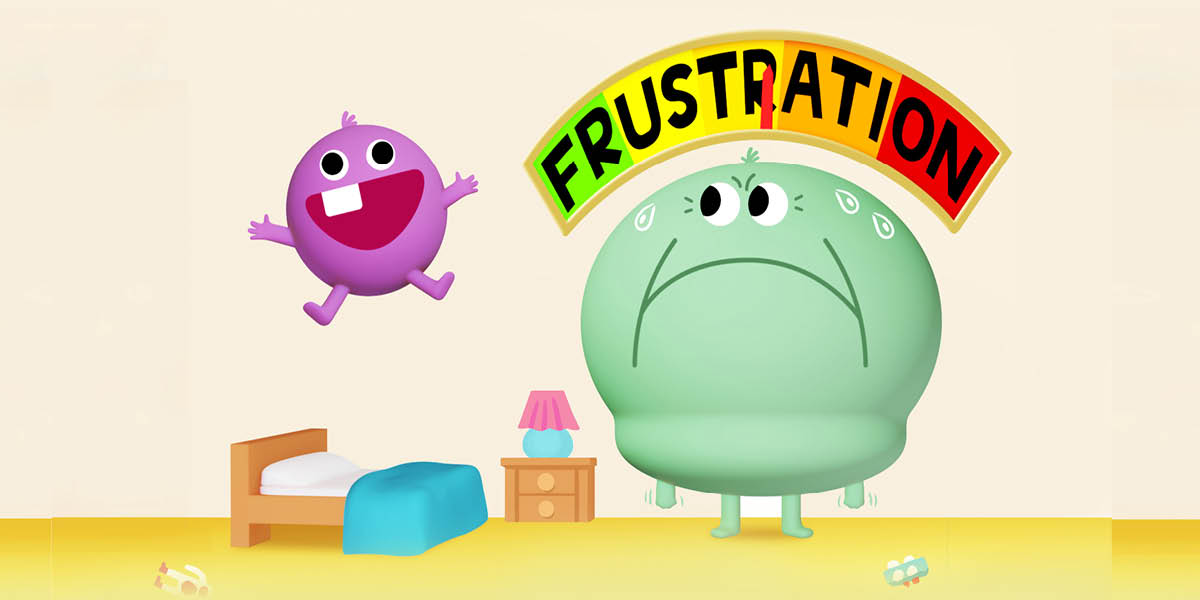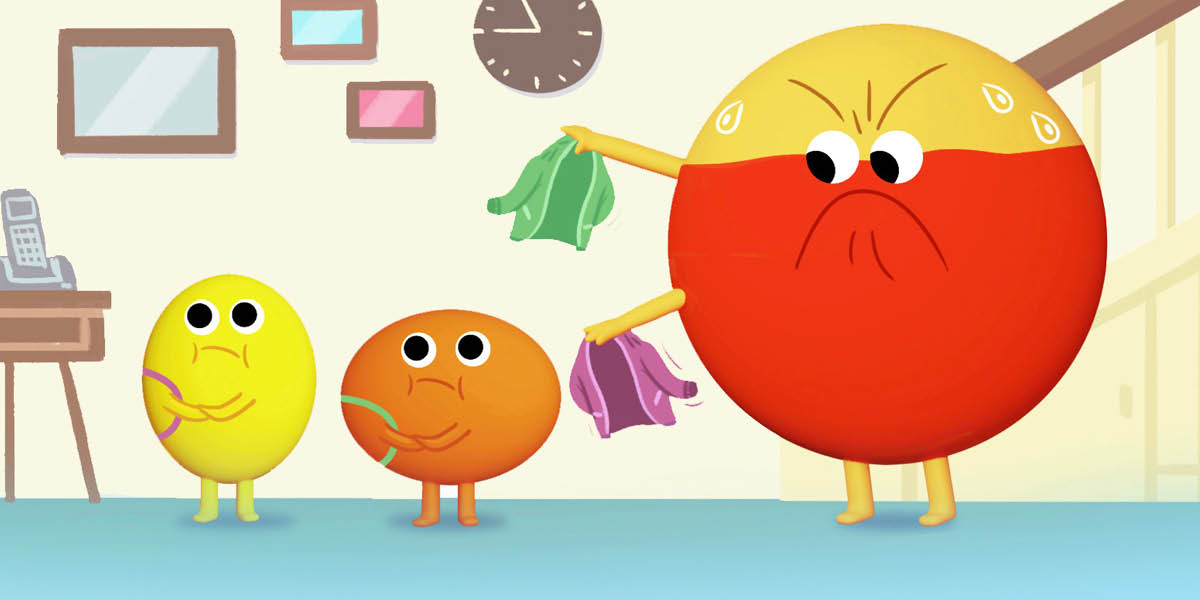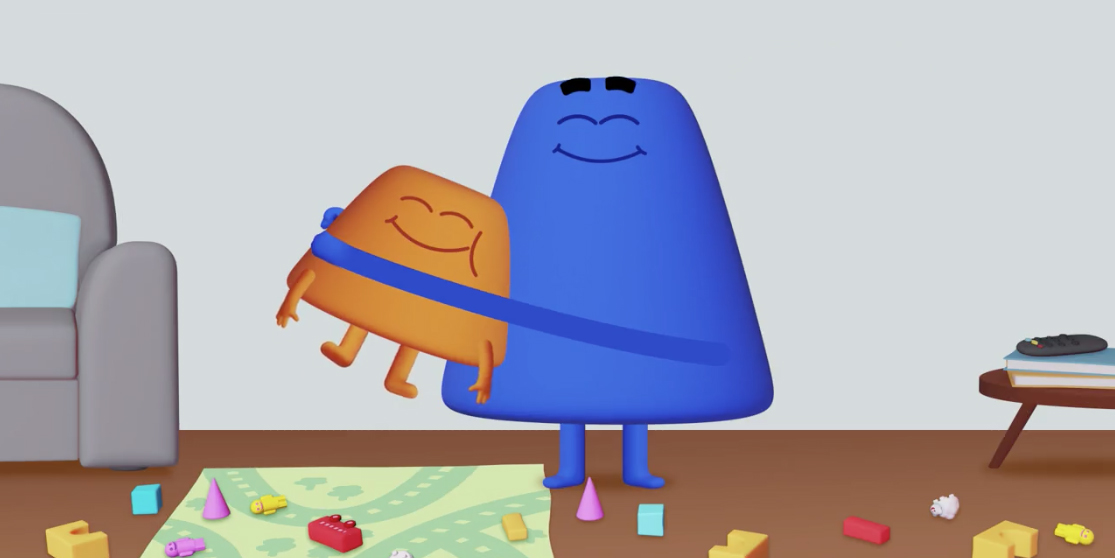Being a parent can be hard work. We all want to be the best parents possible. But at times it can be difficult to keep calm when your kids are acting up. If you feel you’re getting frustrated and losing patience, there are ways to calm things down.
Keeping cool with your kids
All kids can act up. Sometimes they do it to test boundaries, sometimes they want attention and other times they’re just being kids. You may find yourself getting wound up. None of us like shouting or losing our temper, but don’t be hard on yourself if it does happen. Saying sorry if you do lose your temper is a good way to set a positive example for your child.
Your child copies you and learns from that. So keeping calm, as difficult as it can be, will help them learn to control their own emotions.
It may feel impossible not to get angry when they’re pushing your buttons, but there are things you can do which will help you stay calm.
- If you are angry, avoid eye contact with them for a moment as you try to calm down.
- Count to five with your eyes closed. You could even ask them to count with you.
- Step away for 5 minutes if you can safely.
- Take some deep breaths until you feel yourself calming down.
- Pick your battles, some situations aren’t worth getting in to an argument about.
- Before you react, pause and think about how you want to deal with this.
- Sometimes it’s best to talk things over when you’re not in the heat of the moment. Tell them that you’re both upset, and need a break right now. You can then talk about it later.
Tips for tackling difficult behaviour calmly
After you’ve given yourself a chance to calm down, it’s easier to deal with your child and to calm them down, too. Here are some things you can try:
- Ask yourself why they’re misbehaving. They might just be tired, hungry, or excitable. If you don’t know what’s wrong, ask them. If they’re little, maybe use colours, pictures, or their toys to help.
- Get down to their level. Sometimes all they need is a cuddle and let them know you understand how they feel.
- Talk to them calmly to explain why what they were doing was wrong.
- Let them know that you’re listening and understand their feelings.
- With very young children, it may help to distract them with a book, a toy, or looking at what’s going on around you.
- If you’re both shouting, no one hears each other. If you speak in a quiet voice, it’ll make you seem like you’re the one in control – and they’ll have to stop shouting to hear you.
Things you can do to prevent difficult behaviour
- Tell them when they’re being good, not just when things are going wrong. Make sure they know how happy that makes you – kids love this attention.
- Use colours or emojis to talk about their emotions or worries. This will help them to understand what they’re feeling – which will help them to control their behaviour. You may find this emotion wheel helpful as well – it can be used by children of all ages to help them identify how they’re feeling.
- If they’re upset about something, the car is a good place to discuss things. Often having no eye contact helps them to open up.
- Children need consistent boundaries to feel secure – even if they will push against them! Why not sit down together and agree some house rules for the whole family.
- Keep consequences realistic – and make sure you stick to them. There is no point threatening to take away a toy for the day, then giving it straight back.
- We all know situations where our kids get grumpy – so it can be a good idea to be prepared for this. Like if you know your child hates long journeys or going shopping, take books and activities to keep them busy.
- It’s much easier to take care of our kids when we take care of ourselves too, so make sure you take some time for yourself.
- If your child keeps getting very angry or hitting you, a good idea is to make a plan to calm things down. You can agree a word to use if things are getting too heated and different places you’ll go to calm down.
How responding to your child calmly helps them manage their feelings
If your child is upset or angry about something, your response will show them how to manage these big emotions.
If they’re having a strop, it can be tempting to ignore them until they calm down. And sometimes this may be the only option if you’re feeling really stressed. But if you always do this, it doesn’t help them learn to deal with their feelings.
Instead, try to respond calmly. Help them to understand what they’re feeling and try to find a way to make them feel better. This way, they’ll gradually learn how to do this for themselves. And this is an important life skill: we all need to be able to recognise when we’re getting angry or upset and know how to calm ourselves down.
Likewise, if your child is rude to you or argues with you, try to help them understand why they’re cross, and end the disagreement on a positive note. This doesn’t mean you have to give in to what they want.
Looking after yourself
Children pick up on how their parents are feeling – so it’s important you look after yourself and feel the best you can. But sometimes for parents looking after themselves is the last thing on their list. It’s hard to be strong and supportive for anyone else if you’re feeling tired and low. Don’t think of carving out a bit of “me time” as a selfish thing to do – it’s an important part of caring for your kids. If you’re worried about your own mental health, don’t push it to the bottom of your to do list. Talk to a friend, a listening organisation or your GP. You can find lots more help in our Family Support Directory.
Staying active and getting out and about is one of the most important things for our mental and physical wellbeing. But when you have a new baby in the house it can sometimes be a struggle finding things to do. Our Activities & Play section has ideas on things to do indoors and outside.
When the situation is dangerous
When they’re in danger, stay as calm as you can and remove them from the situation. Give them lots of reassurance and hugs – you’ll probably both have had a fright! Once you’ve both calmed down you can explain why it was dangerous and how they should behave in future.
If they’re doing something that might hurt someone else, gently and calmly remove them and tell them why they aren’t allowed to do this. Try and find out what the problem is - are they frustrated by something that’s happening?
What if I don’t get it right?
Staying calm when you’re wound up isn’t easy and takes practice, so don’t be hard on yourself if you don’t always get it right. All parents lose their temper sometimes, but you can set a positive example to your child by saying sorry if you do.
Remember that you’re not alone – all of us struggle from time to time. Talk to someone you trust, like a partner, friend, family member, health visitor or your GP. If you don’t want to talk to someone you know, you can also chat to Children First's support line.
What the professionals say
“There is no such thing as a perfect parent. That is such a relief for parents to hear! In fact, our children don’t even need perfect parents. Young children learn a lot from moments of difficulty, including when they are unhappy with you! The most important thing about those tough moments is that you ‘make up’ at the end of them. You let your little one know that you heard their discomfort. Scientists call this the ‘Rupture-Repair Cycle’. Ruptures are okay as long as there is always a repair afterward. Trust is built in those moments of repair.”

Free Togetherness Online Learning Pathways courses for parents and carers
Life as a parent can be busy! Are you looking for help to understand your child and how you can support them as a parent, but not sure where to start? If so, you might be interested in looking at the Togetherness Online Learning Pathways, they cover a range of topics and ages from pregnancy to 19+ years. Togetherness online learning pathways take parents on a learning journey to increase understanding about childhood development, behaviour and wellbeing. This helps build connected relationships, resilience and supports families to thrive.
You can find out more at Togetherness and access the courses for free using the code TARTAN.
 Activities & Play
Activities & Play Behaviour
Behaviour Childcare
Childcare Development & Growing Up
Development & Growing Up Family, Friends & Relationships
Family, Friends & Relationships Feeding Your Baby
Feeding Your Baby Food & Eating
Food & Eating Health & Safety
Health & Safety Mental Health & Wellbeing
Mental Health & Wellbeing Money & Work
Money & Work Online Behaviour & Safety
Online Behaviour & Safety Pregnancy & First Days
Pregnancy & First Days School & Education
School & Education Sleep
Sleep










 Family, Friends & Relationships
Family, Friends & Relationships
 Mental Health & Wellbeing
Mental Health & Wellbeing